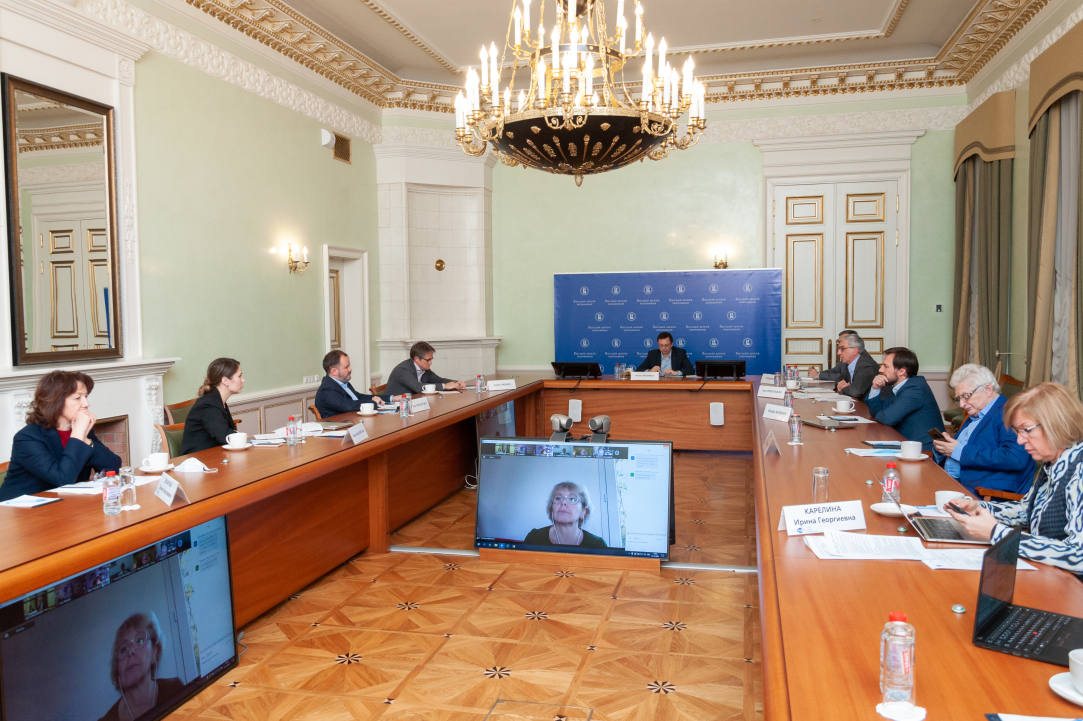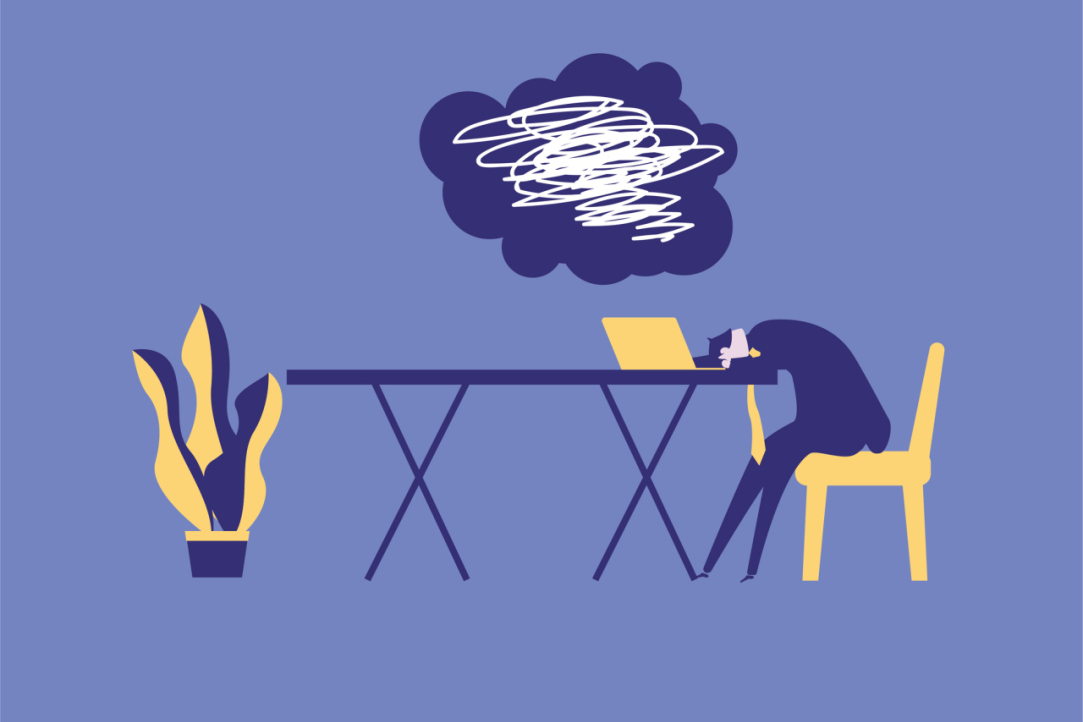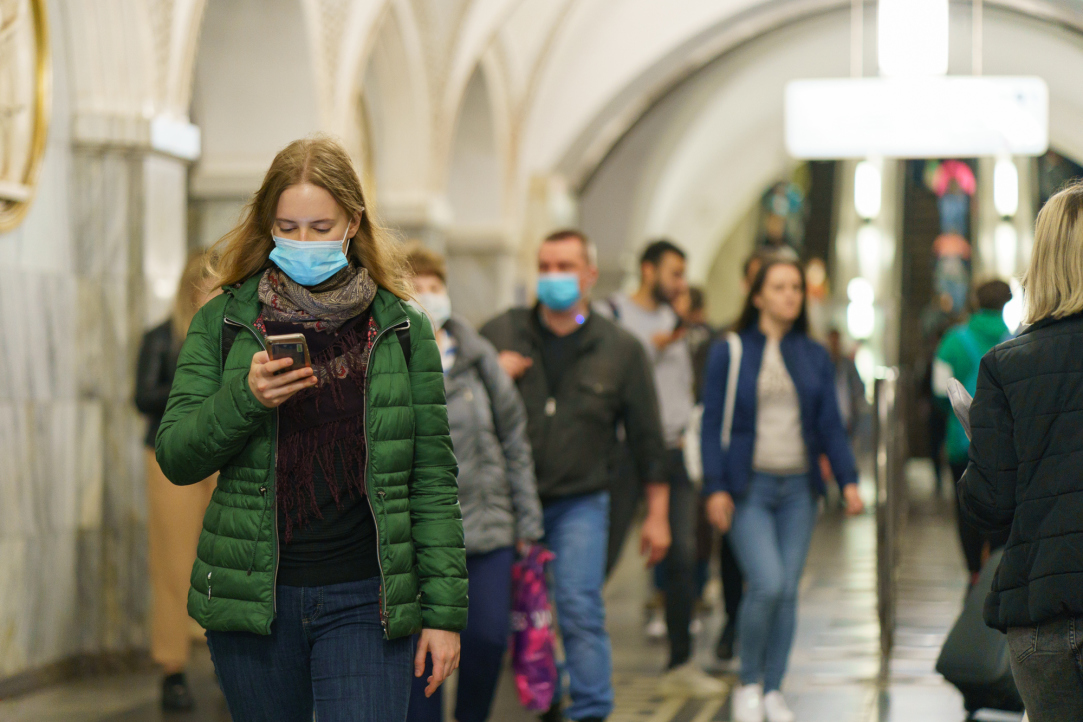
‘We Need Proactive Leaders’
The HSE Graduate School of Business (GSB), the French INSEAD, and Beeline University have developed and delivered a corporate succession and talent development programme for 40 of Beeline's senior executives. ‘Leadership. Accelerator. Beeline’ (LAB) is a seven-month programme combining international best practices in management competencies, customer centricity, and digital business transformation.

HSE ISSEK Report Is the Most-cited Publication in the Digital Field
Issued in 2019 by the Institute for Statistical Studies and Economics of Knowledge (ISSEK) at HSE University, the report‘What is the Digital Economy?’ has topped the Russian Science Citation Index list of the 6,000 most-cited publications in the digital field in 2019–2021. Analysis of the database shows that other ISSEK papers on digital topics have also become hits in the research world.

IAC Welcomes New Members and Discusses HSE University Development
On December 1, key areas of HSE University’s recently adopted strategy were presented at the extended meeting of the International Advisory Committee. Outgoing and new members of IAC learnt more about the University’s initiatives in human capital and AI research, as well as about its plans to build a Master’s Engineering School.

Central Banks Need to Take Action to Fight Climate Change
Hubert Kempf, Professor of Economics at the Ecole Normale Supérieure Paris - Saclay (France) and Academic Supervisor of HSE International Laboratory for Macroeconomic Analysis (IMLA), will speak about the greening of monetary policy at ameeting of theDiscussion Club on Modern Economic Policy on November 25. In his interview, Professor Kempf spoke about the work of IMLA, the development of macroeconomics, and the role central banks can play in combatting climate change.

How to Improve the Vaccination Campaign and Achieve Global Immunity to COVID-19
An international study conducted with the participation of HSE University researchers has found that people in developing countries are much more willing to get vaccinated, the most common reason for not getting vaccinating is fear of side-effects, and attitudes towards vaccination are primarily influenced by doctors and health professionals.

‘In Many Cases, We Are Falling Behind not by Years, but by Orders of Magnitude’: HSE Experts Suggest Ways to Speed Up Russia’s Technological Development
Yaroslav Kuzminov, HSE Academic Supervisor, and Leonid Gokhberg, First HSE Vice Rector, spoke at an expert meeting with Dmitry Medvedev, Deputy Chair of the Security Council of the Russian Federation, on issues of Russia’s technological development. They outlined the current state of research and development and offered suggestions on how to gear the economy towards innovation.

‘The Traps in Our Way’: Experts Discuss Job Market and Human Capital in Russia
What fields employees can hope to get high salaries in? What is the return on higher education? How is life expectancy related to retirement age? These and some other issues were discussed by experts at the First Conference ‘Labour Market: Demographic Challenges and Human Capital’ organized by the HSE Human Capital Multidisciplinary Research Centre.

How People’s Behaviour Has Changed in Public Places during the Pandemic
The HSE Centre for Fundamental Sociology has recently held ‘Logica Socialis’, an open social theory seminar. Andrei Korbut, Senior Research Fellow at the HSE Centre for Fundamental Sociology, presented his report entitled ‘COVID-19 as an interactional phenomenon: People’s behaviour in public places during the pandemic’.

The Core of the Nesting Doll: What a Comparison of the April Conference, the World Economic Forum, and the Gaidar Forum Reveals
This year the April International Academic Conference on Economic and Social Development took place for the twenty-second time, and, for the first time, Sberbank joined HSE University as a co-organizer of the event. Research assistants of the Economic Journalism Laboratory, headed by Nikolay Vardul, analyzed the agenda of the April Conference and compared it with those of other major forums. The findings of the study can be found among the laboratory’s publications.

HSE April International Participants Conference to Discuss Global and National Challenges
The Human Capital Multidisciplinary Research Centre will organize a series of presentations and roundtable discussions as part of theXXII HSE April Conference, which will take place from April 13 to 30, 2021.


Submission Deadline: December 20, 2025